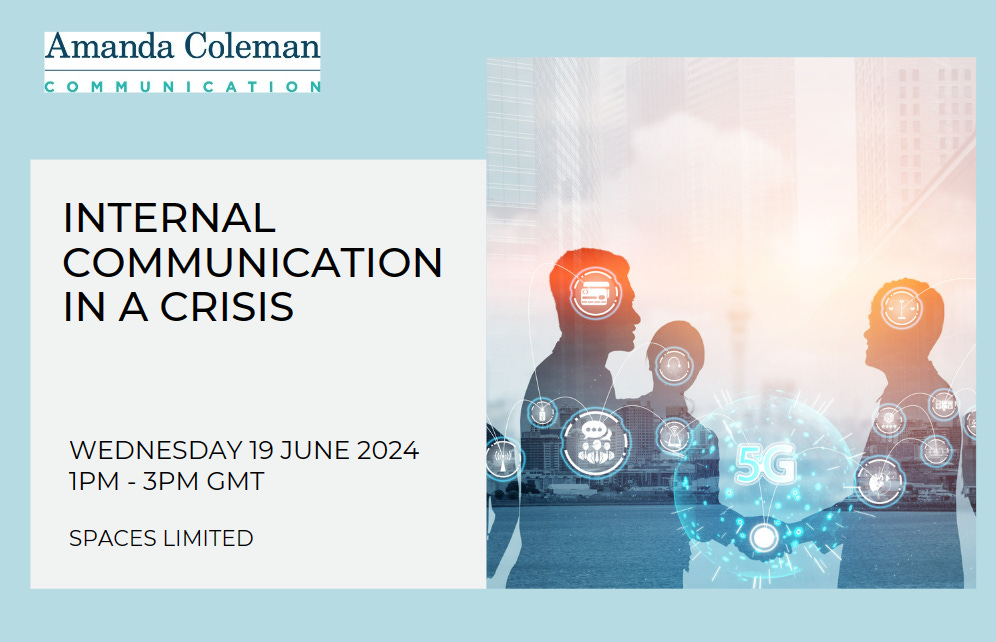Cyber risks - the importance of planning
It took Ticketmaster 10 days from identifying a cyber breach to mentioning it publicly just days later hospitals in London were dealing with a ransomware attack. The reality of the cyber risks were brought home to all businesses and organisations in the past few days.
I spend a lot of time talking about risks and preparing crisis communication plans. Every time I talk about the risks cyber threats are at the top. We know they are a huge risk because they feature on the World Economic Forum global risks list. But if we wait until an attack happens we are not going to be able to move quickly.
Speed is always important when dealing with a crisis and especially for the communication with the instant sharing of issues, problems and emergencies. Within a few minutes a situation can become a global issue with the reputational damage that is associated with it. This is the problem that Ticketmaster faced. The slow response which led to customers receiving information about the attack through the media sparked extensive online debate and concerns from those who have used the company.
I have mentioned in the updates below some new guidance on ransomware attacks that has been produced. These are incredibly challenging situations. The internal communication becomes critical. People need to get off systems, shut them down and try to limit the damage. I have been reading about the Wannacry attack and sadly it appears as though there is still a lot to learn.
Our reliance on technology is a significant weakness that we all need to be aware of and to mitigate against attacks. For all PR and communication professionals it is about being ready and able to respond quickly without relying on IT teams to lead on communication. Three key things to remember:
Internal communication is critical and needs to move quickly to prevent the situation deteriorating further. Keep briefing employees so they know what to do and can try to keep the business moving.
Wherever possible make those affected aware directly without waiting for them to find out information from media reports. Treat your customers and former customers with respect.
Take action quickly so that you are demonstrating you are in control of the response and are dealing with it as quickly as possible. These situations can be complex so make it easy to understand what you are doing and keep reinforcing details of your actions.
A final thought is to learn from what has happened recently. Don’t delay in developing a cyber attack/data loss crisis communication plan.
Internal Comms in a crisis
The next crisis communication focused training is taking place on Wednesday 19 June with a two hour session looking at internal communication when a crisis happens. It is a subject we don’t pay as much attention to as the external demands. But being able to work with staff who are responding to the situation and building trust and confidence in the business from its employees is critical.
If you are interested and want to find out more about the session email office@amandacolemancomms.co.uk .The sessions take place on Zoom and cost just £50 (+ vat).
In Brief:
The National Security Cyber Centre has issued guidance for organisations that may be considering making a payment in a ransomware attack. Find out more here.
Critical infrastructures have been targeted by a ransomware group under the name Black Basta. Warnings have been issued about the group after they have targeted more than 500 organisations in the past two years. Find out more here.
Winds caused a power outage in Houston, America that left residents searching for information and helping each other on social media. Find out more here.
A new report has considered the effects of populism on misinformation and aspects of crisis communication around Covid-19. It found those with populist beliefs are more likely to believe misinformation about Covid-19. Find out the details in the report here.
In an interview online the details of research into ‘Pandemic Rhetoric’ by Professor Øyvind Ihlen from the Department of Media and Communication, at the University of Oslo is outlined. Find out details here.
A number of America cities were impacted by network problems that also affected the emergency services numbers. This was the latest problem for AT&T who experienced an issue four months ago. Find out more here.
An EU conference has been considering how to improve crisis response. It was considering an evaluation of the EU Civil Protection Mechanism which highlighted the need for more coordination in the response across sectors as there is increasing complexity and numbers of emergencies. Read more here.
An article in PR News considers what the new CEO of Boeing needs to do to rebuild the reputation. Find out more here.
The latest Testing Times case study has been published. This time it looks at the impact of a public inquiry and long running issue. To receive a copy email office@amandacolemancomms.co.uk
Diary Dates:
The next short training session by Amanda is on Wednesday 19 June and focuses on Internal Communication in a Crisis. If you are interested in joining the session which is two hours long email office@amandacolemancomms.co.uk
On Thursday 20 June Amanda will be running a crisis communication session for local government and public sector communicators on behalf of Westco. Find out more about the session here.
Amanda will be running the half day training Making Better Decisions Under Pressure for the PRCA on 2 July. Find out more about the training here.



